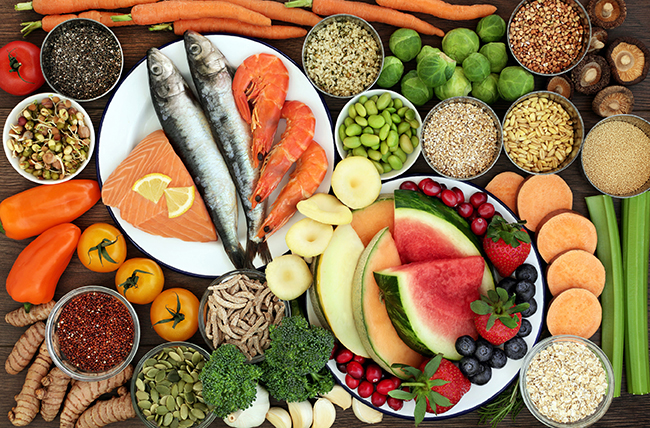Traveling as an athlete, you’re no stranger to the challenges of maintaining peak performance. But what happens when you throw travel into the mix? Whether you’re headed to a competition, a training camp, or a sports event, staying on top of your nutrition game while on the road is vital. In this blog, we’ll walk you through practical tips and strategies to ensure you eat well and perform your best, even when you’re miles away from your usual routine.
Plan Ahead: Your Roadmap to Success

Create a Travel Nutrition Plan
Before you even hit the road, take some time to plan your meals and snacks. Start by considering your dietary requirements and researching the food options at your destination. If you have specific nutritional needs or preferences, this plan can be a lifesaver.
Pack Smart
Packing is more than just tossing clothes into your suitcase. It’s about preparing for your nutritional needs. Bring along healthy, non-perishable snacks such as nuts, seeds, and protein bars. Don’t forget reusable utensils, a water bottle, and a cooler bag to keep fresh items fresh. Being prepared can save you from
making unhealthy choices when you’re hungry and on the go.
Airport and Travel Day Nutrition: Navigating the Food Desert
Choose Nutrient-Dense Airport Food
Airport food options can be a dietary minefield, but with a little mindfulness, you can
make better choices. Seek out restaurants that offer healthier menu options. Opt for salads, grilled proteins, and whole grains, while avoiding high-sugar and fried foods.
Stay Hydrated
Air travel can be dehydrating, so make an effort to drink water throughout your travel day. Skip the sugary drinks and alcohol, which can contribute to dehydration. Staying hydrated will help you arrive at your destination feeling more alert and energized.
Eating at Your Destination: Exploring the Local Food Scene

Research Local Food Options
One of the joys of traveling is experiencing different cuisines. Research local restaurants or grocery stores that align with your dietary needs. This can be an opportunity to try new and nutritious foods unique to your destination.
Embrace Whole Foods
When dining out or shopping for groceries, prioritize whole foods. Choose whole grains, lean proteins, and fresh fruits and vegetables. Minimize processed and fast food consumption, as these can leave you feeling sluggish and less energetic.
Meal Timing and Frequency: Staying on Schedule
Stick to Your Usual Meal Schedule
Do your best to eat at your usual meal times, even while on the road. Consistency can help your body adapt to the changes in your surroundings. If you’re traveling across time zones, adjust your meal times gradually to minimize jet lag’s impact.
Frequent Smaller Meals
Rather than consuming large, heavy meals, consider breaking your daily intake into several smaller meals or snacks. This approach can help maintain your energy levels and prevent that dreaded post-meal lethargy.
Nutrient Prioritization: Your Key to Sustained Performance
Carbohydrates for Energy
Carbohydrates are still your body’s primary source of energy. Opt for complex carbohydrates like brown rice, quinoa, and sweet potatoes. They provide a steady release of energy that can keep you going through your training or competition.
Protein for Recovery
Protein is essential for muscle repair and recovery, especially after intense workouts. Incorporate lean protein sources such as chicken, fish, or plant-based options like tofu and legumes into your meals. Don’t forget about your post-workout protein fix!
Healthy Fats for Sustained Energy
Healthy fats, such as those found in avocados, nuts, and olive oil, can provide a source of lasting energy. They’re perfect for athletes who need sustained stamina during long training sessions or competitions.
Special Diets and Restrictions: Navigating Dietary Challenges

Vegetarian or Vegan Travelers
If you’re a vegetarian or vegan athlete, planning your meals while traveling is crucial. Research vegetarian or vegan-friendly restaurants at your destination in advance. You can also bring along some non-perishable vegan snacks to ensure you have options when dining out may be challenging.
Food Allergies or Intolerances
For athletes with food allergies or intolerances, traveling can be particularly tricky. Carry allergy-friendly snacks and translated allergy cards to communicate your dietary restrictions effectively when dining out in a foreign country.
Local Cuisine Exploration: A Taste of Adventure
Sampling Local Delicacies
Exploring local cuisine can be a delightful part of your trip. Try out regional specialties and traditional dishes, but be mindful of portion sizes and the balance between indulgence and performance fuel. Discovering new
flavors can be an exciting part of your travel experience.
Balancing Indulgence and Nutrition
It’s okay to indulge in local treats, but find a balance that won’t hinder your performance. Savor these treats in moderation, and consider offsetting them with healthier choices. This way, you can enjoy the best of both worlds.
Adapting to Different Time Zones
Minimizing Jet Lag Impact
If your travels take you across multiple time zones, managing jet lag is essential. Gradually adjust your meal times to align with your new time zone. Stay hydrated, and consider the timing of your meals to help your body adapt more smoothly to the time change.
Sleep and Meal Synchronization
Sync your meal times with your sleep schedule as much as possible. Eating when it’s daytime at your destination can help reset your body’s internal clock. If you arrive late at night, opt for a light meal or snack, and save a more substantial meal for the following day.
Eating on the Go: Fast and Healthy Options

Nutritious Snack Options
When you’re in a hurry, convenient and nutritious snacks can save the day. Stock up on options like yogurt cups, fruit, trail mix, and pre-made salads at local grocery stores. These can be a lifesaver when you need a quick, healthy fix.
DIY Travel Meals
Consider preparing your meals when possible. Many hotels offer rooms with a kitchenette, making it easier to control the nutritional content of your meals. DIY options can save you both time and money while maintaining your dietary needs.
Supplements for On-the-Road Support
Portable Supplements
Supplements can be a valuable addition to your travel nutrition toolkit. Pack essential supplements like protein powder, vitamins, and electrolyte tablets in convenient, portable containers. They can help fill in nutritional gaps when whole foods are hard to come by.
Consult with a Nutritionist or Dietitian
If you’re unsure about your supplement needs while traveling, consult with a sports nutritionist or dietitian. They can provide guidance on the specific supplements that may benefit your athletic performance during your trip.
Recovery Nutrition During Travel
Post-Competition Recovery
After a strenuous competition, prioritize recovery nutrition. Replenish lost fluids and electrolytes with hydrating beverages. Consume a balanced meal that includes carbohydrates for glycogen replenishment and protein for muscle recovery.
In-Transit Recovery Strategies
During long flights or car journeys, incorporate light stretching exercises and deep breathing to aid in recovery. Hydrate regularly, and consider compression garments to reduce muscle fatigue.
Dealing with Dietary Restrictions Abroad

Translation Cards for Dietary Restrictions
If you have food allergies or intolerances, create translation cards in the local language that explain your dietary restrictions. These cards can be a valuable tool when communicating with restaurant staff and chefs.
Emergency Snacks for Dietary Safety
Carry a stash of emergency snacks that you know are safe for your dietary restrictions. This can provide peace of mind in case finding suitable food options becomes challenging. By delving into these additional aspects of eating well while traveling as an athlete, you’ll be better prepared to navigate the unique challenges and opportunities that arise on the road. Whether it’s indulging in local delicacies, managing jet lag, or ensuring you have the right supplements, you can maintain your performance at its peak while savoring the journey.
Conclusion: Your Passport to Peak Performance
Traveling as an athlete doesn’t mean you have to compromise your nutrition and performance. With proper planning, smart choices, and a little bit of flexibility, you can continue to eat well and perform at your best, even on the road. Remember that a well-nourished body is a powerful tool, and it will help you achieve your athletic goals, no matter where your journey takes you. Safe travels and bon appétit!
Watch the Video
FAQ’s
How does traveling affect athletic performance?
Traveling can affect athletic performance by causing fatigue, disrupting routines, and exposing athletes to different time zones, climate, and environmental conditions, which can impact physical and mental readiness.
What is traveling in sports?
In sports, “traveling” describes athletes and teams moving to various locations for competitions, events, or training purposes. It involves journeys, often to different cities, states, or even countries, to participate in games or matches. Traveling is a fundamental aspect of sports, enabling athletes to showcase their skills on a regional, national, or international level.
How do athletes manage travel fatigue?
Athletes manage travel fatigue by:
- Prioritizing Rest: Getting ample sleep before and after travel.
- Hydration: Staying well-hydrated to combat jet lag.
- Adjusting Sleep Schedule: Gradually shifting sleep patterns to align with destination time zones.
- Nutrition: Eating balanced meals to maintain energy levels.
- Active Recovery: Engaging in light exercise to reduce stiffness.
- Mental Preparation: Visualizing performance and maintaining a positive mindset.
- Using Technology: Utilizing sleep aids, like eye masks and noise-canceling headphones.
- Professional Guidance: Seeking advice from sports psychologists or trainers to manage the psychological aspects of fatigue.
